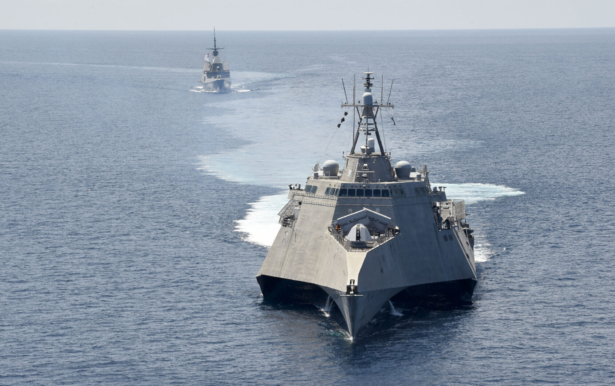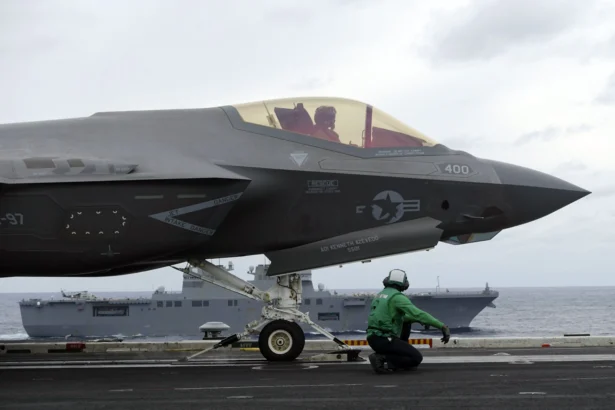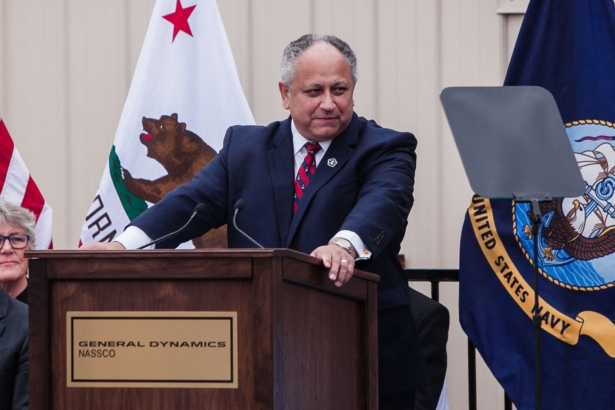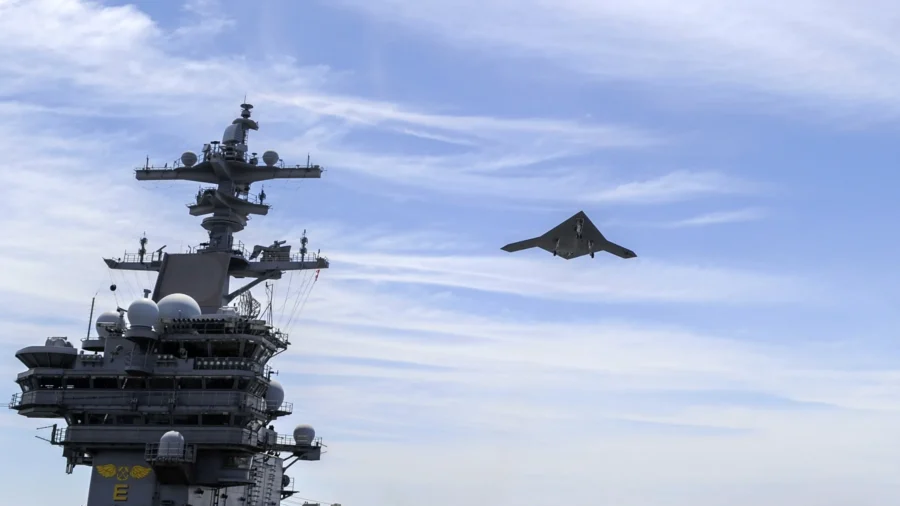The construction of various major Navy vessels, including two new aircraft carriers, has incurred delays of up to three years, largely due to supply chain issues and difficulties in finding skilled workers, according to an internal Navy review.
The review, ordered by Secretary of the Navy Carlos Del Toro earlier this year after concerns about the lingering effects of post-pandemic conditions, documented the progress on the construction of various new warships, including submarines and amphibious assault ships.
The 496-foot USS Constellation (FFG-62), under construction at Fincantieri Marinette Marine in Wisconsin and which is to be the lead ship in a new class of guided-missile frigates, may not be completed until 2029, three years later than the original 2026 delivery goal, the review said.

During a Tuesday meeting with reporters, Naval Sea Systems Command Chief Vice Adm. James Downey told reporters that the detailed design for the frigate was just over 80 percent complete. According to the latest specifications, the goal is to complete the design by the end of this year.
Mr. Downey said the delays were exacerbated by the shipyard’s workload—it is currently building two other large ships—and the difficulty in finding qualified personnel and keeping them on board.
Numerous Navy Ships Delayed
On various occasions in March, the Navy announced delivery delays of three other lead warships, all under construction at HII’s Newport News Shipbuilding in Virginia.
The USS Enterprise (CVN 80), a 1,092-foot nuclear-powered aircraft carrier to be the lead boat for the Navy’s Columbia-class nuclear submarines and Virginia-class attack boats, has incurred an 18-month delay. The Ford-class carrier is now set to be delivered in September 2029.
Another Ford-class carrier, the John F. Kennedy (CVN-79), will be delivered in 2025, 12 months behind schedule. The delays are mainly to allow modifications for the carrier to field F-35 Joint Strike Fighters, a feature not included in the original plans.

Another large vessel, the 561-foot USS District of Columbia (SSBN-826), the lead submarine for the Navy’s Columbia-class nuclear submarines, is facing a one-year delay, largely due to supply chain issues, specifically turbine component manufacturing delays. The submarine should be delivered in Fiscal Year 2028, according to the U.S. Naval Institute.
The significant construction delays further prompted the Navy in March to postpone the purchase of its next aircraft carrier, the CVN-82, by two years—from 2028 to 2030.
Various medium and smaller-sized ships, including amphibious assault ships and transport docks, Arleigh Burke-class destroyers, and others, are also “late to contract,” albeit to a lesser extent, the review stated.

Business Integrity
“The American public should know that the Department of the Navy is committed to developing, delivering, and sustaining the finest warfighting capability to our Sailors and Marines,” Mr. Del Toro said in January when he announced having ordered a “comprehensive” Navy shipbuilding review.
“Yes, COVID had a negative impact on the supply chain, but we need to move beyond that now,” Mr. Del Toro told shipbuilders in February during his keynote address at West 2024 before accusing the shipyards of profiteering.
“Overall, many of you are making record profits—as evidenced by your quarterly financial statements—and while I am happy for you, you can’t be asking for the American taxpayer to make greater public investments while you continue to goose your stock prices through stock buybacks, deferring promised capital investments, and other accounting maneuvers … rather than making the needed, fundamental investments in the industrial base at a time when our nation needs us to be all ahead flank,” he told a stunned audience.
“You need to deliver ships, aircraft, and submarines on time and on budget,” Mr. Del Toro stated, adding, “We will leverage all legal means at our disposal to ensure that the American people are getting what they paid for.”
Mr. Del Toro proposed a closer collaboration between industry and the military, including apprenticeships, to find the 150,000 workers necessary to rebuild the Navy fleet over the next ten years.
During the speech, he also emphasized the importance of the Navy in the current geopolitical climate as it relates to the war in Ukraine and China’s domineering attitude in the Indo-Pacific.

